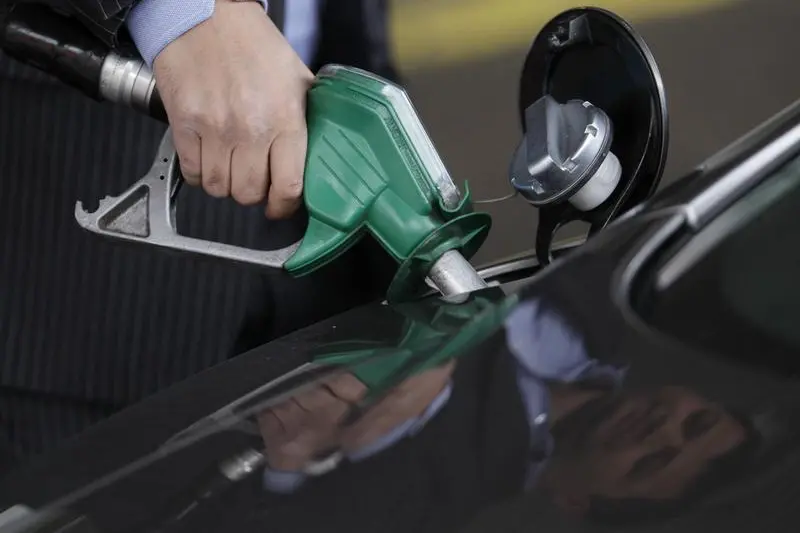PHOTO
Prices for Brent crude oil futures reached $80 per barrel in trading on Thursday afternoon, which was its highest level since November 2014, as traders reacted to the possibility that supply could face further constraints.
Markets reacted after French energy giant Total said on Wednesday that it could abandon a huge project agreed in November 2016 to develop gas at the South Pars field in Iran due to the renewed sanctions imposed on the country by the United States.
The firm said in a statement that it would wind down its involvement in the project by November unless it receives "a specific project waiver" from U.S. authorities to continue.
Mihir Kapadia, CEO of investment management firm Sun Global Investments, said in a note published on Thursday that traders had also been reassured about the potential upside for oil due to data which showed a reduction in U.S. oil stockpiles, suggesting "a global tightening" of supply.
"Whilst this data from the U.S. government data was previously overshadowed by a more pessimistic outlook from the IEA, the U.S. data coupled with the sanctions from Iran could help to support the markets. Traders will be watching closely to see if prices will rise further.”
Vijay Valecha, chief market analyst at Dubai-based Century Financial Brokers, said that the data showing a fall-off in U.S. crude supplies was bigger than expected and had offset fears of a potential slowdown in global demand growth for oil.
"Inventories of U.S. crude fell by 1.404 million barrels for the week ended May 11, beating expectations for a draw of just 0.763 million barrels, according to data from Energy Information Agency (EIA)," Valechia said in comments distributed to media on Thursday.
He said markets would have to wait to see if Saudi Arabia and Russia - the key proponents of the Opec/non-Opec deal agreed in late 2016 to cut production to shore up the oil price - would be proactive in deciding to pump more crude, or if they would wait until supply disruptions are actually recorded.
In a note published on Wednesday, Jean-Michel Saliba, MENA economist at Bank of America Merrill Lynch, suggested that Saudi Arabia would "likely mitigate, but not fully offset" the supply of oil that is likely to reduce as a result of the new sanctions.
He said that he does not expect the kingdom, which is the world's largest oil producer, to take action in terms of increasing supply until it becomes clear that "there is a material reduction in purchases of Iranian crude oil, which we believe is unlikely to happen before late 3Q18", and that oil prices reach a level where any spike appears to be dampening demand.
For now, demand appears to be robust, according to an oil market forecast produced by Kuwait's KAMCO investment management company on Wednesday.
It said that demand from Asian countries had proved to be "robust", citing figures from China's statistics bureau which stated that throughput at Chinese refineries had increased by almost 12 percent in April 2018 to 12.06 million barrels per day, even as domestic oil production dropped by 2.3 percent year-on-year. Kamco said that this indicated higher oil imports by China from the Middle East.
"The rise in China’s oil demand comes in addition to strong demand growth from India in recent months," Kamco said in its note.
Finally, BMI Research, a Fitch Group company, revised its forecast for Iran's economy in 2019 downward sharply as a result of the country's likely struggles in selling oil on international markets given renewed sanctions. It had previously forecast gross domestic product (GDP) growth of 4.3 percent for 2018, rising to 4.9 percent next year.
However, it revised this year's figure down to 3.1 percent, and next year's forecast to just 0.8 percent, citing the drop in oil exports and a further likely reduction in "already-limited foreign investment flows".
"We do see scope for a broader agreement between the nuclear deal signatories to eventually be reached - resulting in renewed US sanctions relief," BMI Research's note said. "However, this appears unlikely to materialise before November 4, as the American and Iranian positions on what such an agreement should look like remain far apart."
Further reading:
- UAE says OPEC has more significant issues to deal with than Iran - WAM
- Gulf stocks fail to benefit from high oil price as Ramadan dents investor activity
- ANALYSIS: Asia oil thirst tab 1trn a year as crude rises to $80
- Big oil production growing despite capex cuts
(Writing by Michael Fahy; Editing by Shane McGinley)
(michael.fahy@thomsonreuters.com)
Our Standards: The Thomson Reuters Trust Principles
Disclaimer: This article is provided for informational purposes only. The content does not provide tax, legal or investment advice or opinion regarding the suitability, value or profitability of any particular security, portfolio or investment strategy. Read our full disclaimer policy here.
© ZAWYA 2018





















